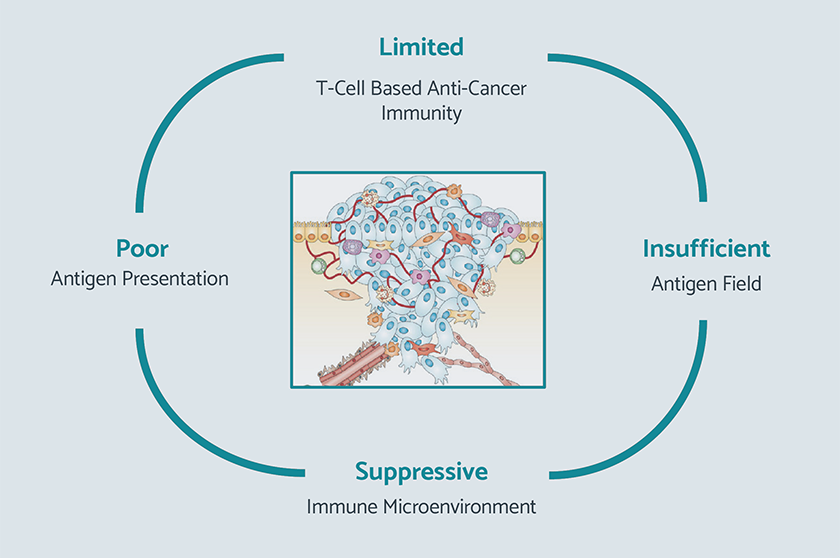Innate and Adaptive Immunity

Overcoming Limitations of Current Immunotherapies
Recent advancements with immunotherapies, including immune checkpoint inhibitors, have achieved limited benefit. Most patients fail to benefit from checkpoint therapies because of one or more of the following:
- Insufficient tumor antigens
- Poor antigen presentation
- Limited T cell trafficking and infiltration
- Limited T cell potential due to immunosuppressive tumor microenvironment
We believe that systemically activating the innate and adaptive immune systems with our investigational immune modulator, odetiglucan, has the potential to improve antigen presentation, T cell recruitment, T cell activation, alleviate immunosuppression in the tumor microenvironment and lead to more robust anti-tumor responses in combination with immune checkpoint inhibitors.
Avoiding the Challenges Associated with Other Systemically Administered Innate Immune Modulators
Clinical development of other innate immune modulators, such as cGAS-STING, Toll-Like Receptors, RIG-I, and NOD-like, has been challenging due to multiple factors including, but not limited to, short half-life, toxicities, narrow therapeutic index and the limited ability to get drug to the target site. As a result, many innate immune modulators must employ intratumoral administration, without the benefit of systemic activation of innate and adaptive immunity and therapeutic benefit at other tumor sites.
We believe odetiglucan’s potential is driven by its low levels of cytokine and chemokine induction, enhancement of innate and adaptive immune cell-mediated tumor killing, and reprogramming of the tumor microenvironment.